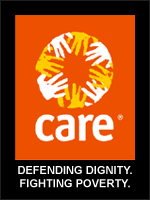Cambodia and World History/World History and Cambodia
January 3-4, 2010, Phnom Penh, Cambodia.
The second “Cambodia and World History/World History and Cambodia” conference will be hosted by Pannasastra University of Cambodia in Phnom Penh, January 3-4, 2010. The first symposium, held in January 2009, attracted scholars from Britain, Thailand, and the United States who engaged in lively discussions with their counterparts at Pannasastra University and the Royal University of Cambodia.This year’s program will similarly be devoted to generating dialog among scholars within and outside of Cambodia about Cambodia’s place in World History. It also seeks to stimulate discussion of world history methodology and those world history processes that have application to the Cambodian past. Further, it will examine the possible role world history can play in framing pre- and post-conflict Cambodian history and thus aid in the development of Cambodia’s educational establishment at all levels of instruction.
Among the topics that may be addressed at the symposium are: the nature of world history; the processes of indigenization; localization, and syncretism in Cambodian history; the decline and fall of classical societies; diaspora and gender studies; the colonial experience; nationalism; post-conflict studies; trade, religion and culture in Cambodia, regional questions in global perspective; borderlands; regionalism and regional diplomatic relations; investment, tourism and resource management issues; the environment; comparative genocide; and models for World History and global studies in Cambodia both in terms of scholarship and instruction. These topics are examples only and should not be taken to exclude proposals on other topics.
A working dinner meeting will be held on Sunday, January 3, with an all-day conference on Monday, January 4, which will follow an all- plenary roundtable format, with all participants attending consecutive one hour-long sessions held throughout the day (with a break for lunch), followed by a working farewell dinner. The sessions will be organized around topically grouped presentations limited to 10-15 minutes each to encourage discussion. It is not expected that formal papers will be read. These presentations can, however, form the basis for publication in a contemplated volume or as part of a forum or individual articles in the journal World History Connected.
The symposium is sponsored by Teachers Across Borders, Inc. (TAB), a non-profit international educational organization. The conference serves as the first of a series of TAB annual activities in Cambodia designed to further Cambodia’s national educational goals.
TAB programs are open to all. There is no registration fee and it is not necessary to make a presentation to participate in this dialog. There is, however, no honorarium for travel or housing.
Individual presentations as well as an entire panel may be submitted for inclusion in the program. Please send a brief vita with full contact information and a brief abstract to the program chair. Those who plan to attend the symposium, but not make a presentation, should inform the program chair of their plans for logistical purposes (room seating, etc.).
The program chair is Professor Marc Jason Gilbert, National Endowment for the Humanities Endowed Chair in World History, College of Humanities and Social Sciences, Hawaii Pacific University, 1188 Fort Street Mall, Honolulu, Hawaii 96813. Phone: 808-544-1169; E-mail: mgilbert@hpu.edu.
Tentative Schedule:
Participants will gather for transportation to a working dinner on Sunday evening (exact time to be arranged), January 3 in the lobby of the Goldiana Hotel, near the conference venue, which offers substantial discounts for Teachers Across Borders activities) For reservations, go to www.goldiana.com/pp/
At 8:30 a.m. Monday morning, January 4, participants will gather in the lobby of the Goldiana for transportation to symposium’s venue at the nearby South Campus of Pannasastra University of Cambodia Campus (in the “NGO” zone, about 2k from the city center--www.puc.edu.kh), not the central campus near the National Museum. Pannasastra is a large, English-medium, multi-campus institution and among the region’s premier universities. Participants making their own way to the campus should check in at the Central Office on the Second Floor of the South Campus main building to the right at the top of the main staircase.
Further information:
Respondents to this call will receive updated information. Participants may wish to visit Siem Reap and the Angkor historical site before of after the program due to the ideal weather and the multiple means of transportation to and from Phnom Penh. There is a (very) expensive Son et Lumaire on the Western New Year’s Eve at Angkor, for which one must book early. In Siem Reap, the Soria Moria is an inexpensive yet friendly and splendid boutique hotel that offers a reduced rate for TAB participants (currently $25.00 a night). It was established with a view to support the sustainable development movement in Cambodia. See www.thesoriamoria.com.
- Michael G. Vann, Ph.D., Assistant Professor, History Department, Sacramento State University www.csus.edu/hist/
- President, French Colonial Historical Society, www.frenchcolonial.org








Aucun commentaire:
Enregistrer un commentaire